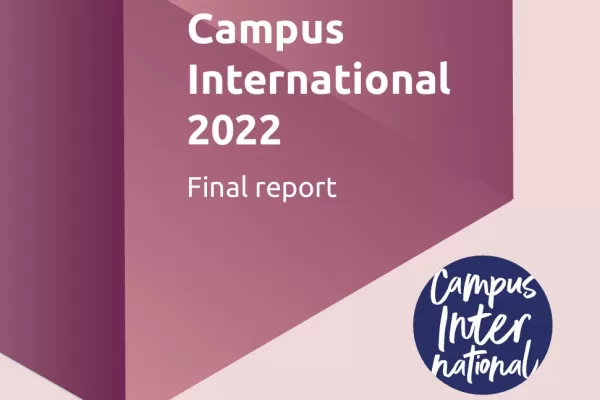Resume
This study delineates the differences between (1) students without foreign experience and (2) students with a foreign experience (‘free movers’ and students with an Erasmus+ scholarship). Therefore, the same group of respondents was followed between November 2018 and January 2020, and three measurements were taken. To establish whether certain attitudes and/or developments are the immediate result of a foreign visit or planned foreign visit, we created an experimental design. The resulting analytical method consists of a linear mixed-model approach. This approach does not consider the change that a student may go through over time as a fixed intercept, but rather as a randomly varying parameter between individuals.
The results show that in terms of nearly all skills and attitudes the two groups of students differ significantly right from the baseline measurement. This implies that students who eventually go abroad will, from the start, have a greater chance at positive self-image, greater self-reliance, and open-mindedness about travel and other cultures. Students who will eventually go abroad, already prior to their departure have higher perceived values regarding cultural orientation and an international and European outlook compared to students who have not had any foreign experience. Only in case of a more flexible attitude, trust in others and an international outlook has a significant impact of a foreign visit been found: after a foreign visit students are often more flexible, more trusting towards others and have a more international outlook than students without a foreign experience.
Considering other values and attitudes, outcomes may point to them as rather a possible explanation for the eventual step abroad rather than outcome: going abroad is perceived as less of a big step by students who are more self-reliant or have a more positive self-image compared to students who possess these qualities to a lesser degree.
Conclusions
- As nearly all skills and attitudes are concerned, the two groups of students (foreign experience vs. no foreign experience) differed significantly right from the 0 measurement.
- The two groups of students also differ in their respective intercultural skills, with the group that eventually goes abroad having higher perceived values for their cultural orientation and international and European outlook.
- Looking at the results over time, and thus at the total analysis, a foreign experience makes a positive contribution to the level of flexibility. Prior to the foreign stay, students assign significantly lower values to being open to travel and other cultures compared to after their stay abroad.
- A significant effect was found regarding students’ international outlook. This concerns a more open external outlook considering living or working outside the familiar Dutch home situation.
- A foreign stay also makes a positive contribution to the trust students have in others. After a foreign stay, students develop greater confidence in others compared to students without a foreign experience.
- A positive effect as the result of a foreign stay on the extent to which a student identifies as European was not found, nor other effects of a foreign stay on personal skills.
Recommendations
- It could be that students who are, for instance, more self-reliant or have a more positive self-image experience going abroad as a smaller step compared to those who have these skills to a lesser extent. Here, follow-up research could possibly provide a more definite answer.
- In light of Erasmus+’s inclusivity policy, in order to reach a more heterogenous group of students, in addition to the socio-economic background of the student, their personal skills and attitudes could also be brought into focus.
Download the report
- Van Inclusie naar Impact 1MB / pdf Download
More information?
Looking for more information about this project? Get in touch: onderzoek@erasmusplus.nl.




